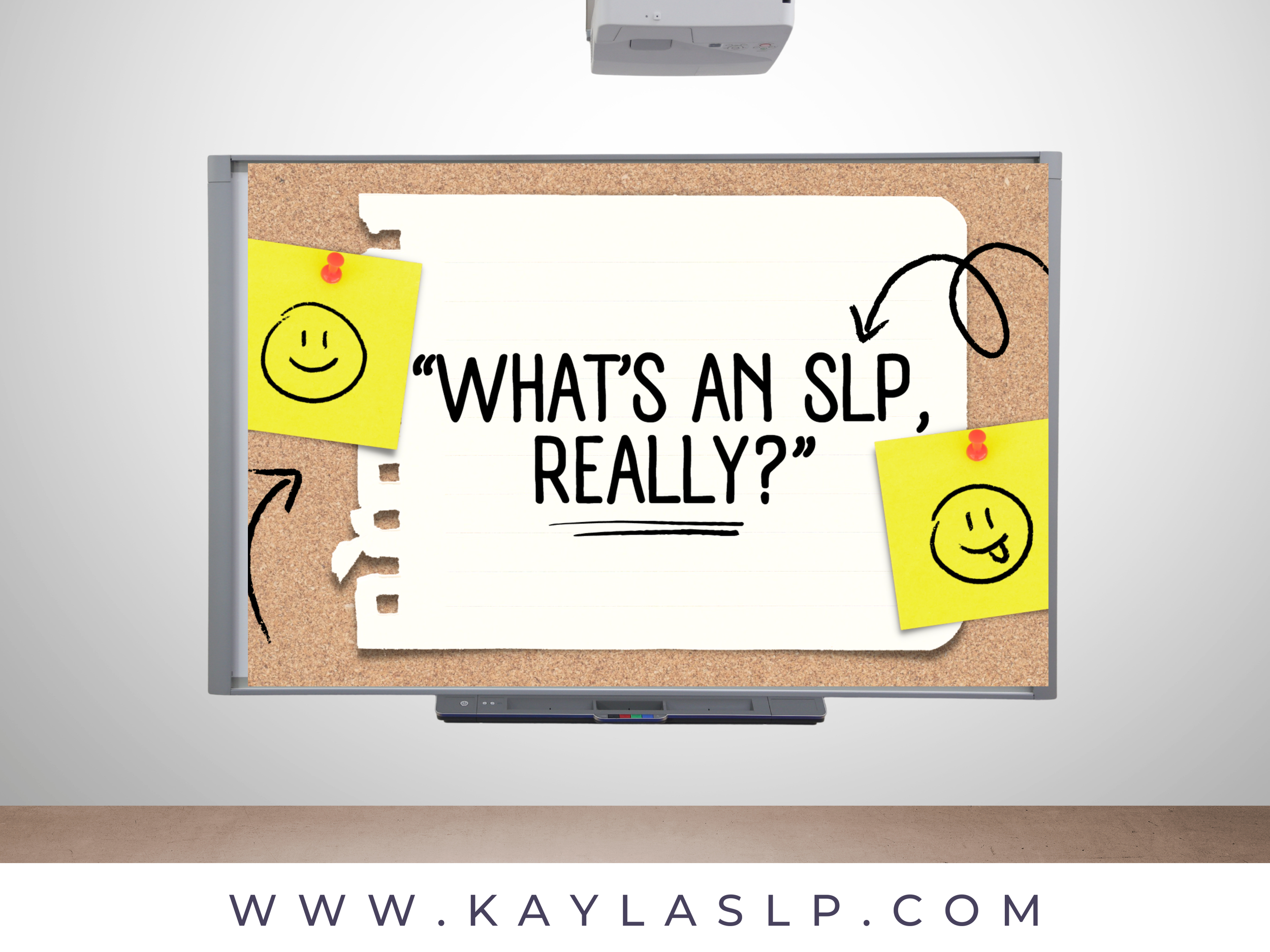The Stop-Doing List That Helped Me Love Being an SLP Again
Let’s be honest: bubble baths aren’t enough. If you’re drowning in to-dos and still feeling behind, it’s time to flip the script. This post walks you through how I used a simple “stop-doing list” to reduce burnout and make space for what actually matters—and includes a free printable toolkit to help you do the same.
Why Teachers Don’t Use Our Speech Strategies (and How to Fix It)
Tired of teachers ignoring your carryover strategies? Learn how to boost classroom follow-through with this simple one-tip method that makes speech therapy collaboration easier for everyone.
Telehealth for SLPs: The Future of Speech Therapy?
Telehealth for SLPs makes speech therapy more accessible, flexible, and personalized. Virtual sessions reach remote students, maintain consistent therapy despite busy schedules, and use digital tools to enhance engagement. Teletherapy supports diverse learning needs and offers effective, convenient care for today’s education.
How I Use Flipbooks to Move Students from Sounds to Conversation
If you're like most school-based SLPs, you’re always looking for tools that are versatile, engaging, and time-saving. That’s why I created the Phonology Flipbooks, a go-to resource that helps move students from phoneme isolation production all the way to conversational carryover.
Review: Articulation Test Center Hive
The Articulation Test Center Hive app by Little Bee Speech is a game-changer for speech-language pathologists when assessing articulation and phonological skills. It’s polished, packed with features, and refreshingly easy to use across Apple devices. Whether you're a solo practitioner or part of a district team, this app is designed to make screenings and evaluations smoother, faster, more consistent, and more engaging for both you and your students.
Review: EdPuzzle for SLPs
SLPs constantly seek engaging tools to capture students’ attention while targeting speech and language skills. Video-based learning has surged in popularity, and EdPuzzle stands out as an interactive, adaptable tool for SLPs. But how effective is it in a speech therapy setting? Oh, just you wait!
Review: Boom Learning for SLPs
SLPs are constantly on the lookout for tools that make therapy more engaging and efficient. With the rise of digital learning, platforms like Boom Learning have become more prominent (and more useful!) in therapy sessions, whether in-person or remote.
Valentine-Themed Activities for Speech Therapy
Need quick and fun activities for Valentine's Day? Use these ideas to keep your sanity and keep your students learning!
App Review: Score 4 Articulation for SLPs
Articulation therapy can sometimes feel repetitive for both SLPs and students, but the right tools can make a world of difference. I’ve recently tested the app, Score 4 Articulation, designed to add games into speech practice. Let’s dive into its features, pros, and cons to see if it’s worth adding to your therapy toolkit.
Benefits of Early Articulation Support
Early articulation can make all the difference! Building a strong speech foundation early in life helps kids communicate clearly and confidently. Between playground chats and classroom discussions, mastering those tricky sounds makes a big impact! Let’s set kiddos up for success with the sounds they need.
Keeping Middle Schoolers Engaged in Speech-Language Teletherapy
Middle schoolers. They're a tricky age group, right? Caught between childhood and adolescence, these students are navigating a world full of changes—and when it comes to speech-language teletherapy, keeping them focused and engaged can feel like a feat. But with the right approach and the use of creative resources, you can turn your teletherapy sessions into something they look forward to. Let’s dive into how you can achieve just that.
Avoiding Burnout by Switching to Teletherapy SLP
Burnout is an all-too-common reality for many speech-language pathologists (SLPs) in today’s fast-paced, demanding work environment. The endless paperwork, packed schedules, and constant travel from school to school can take a toll. If you’re looking for a way to reignite your passion for your career, switching to teletherapy might be the lifeline you need.
Questions to Ask During Your Teletherapy SLP Interview
Securing a teletherapy SLP position is a significant step in your career journey, but how can you be sure it’s the right fit? The key lies in asking the right questions. A well-prepared list can help you gain a deeper understanding of the role, the company, and whether it aligns with your professional goals. Here are essential questions to guide your decision-making process.
Reward Systems for Teletherapy SLPs
The world of teletherapy has revolutionized speech-language pathology (SLP) services, making them accessible to students regardless of location. However, with this shift comes the challenge of keeping students engaged and motivated in a virtual setting. The art of utilizing rewards and motivators can transform a standard teletherapy session into an engaging and fruitful experience.




















